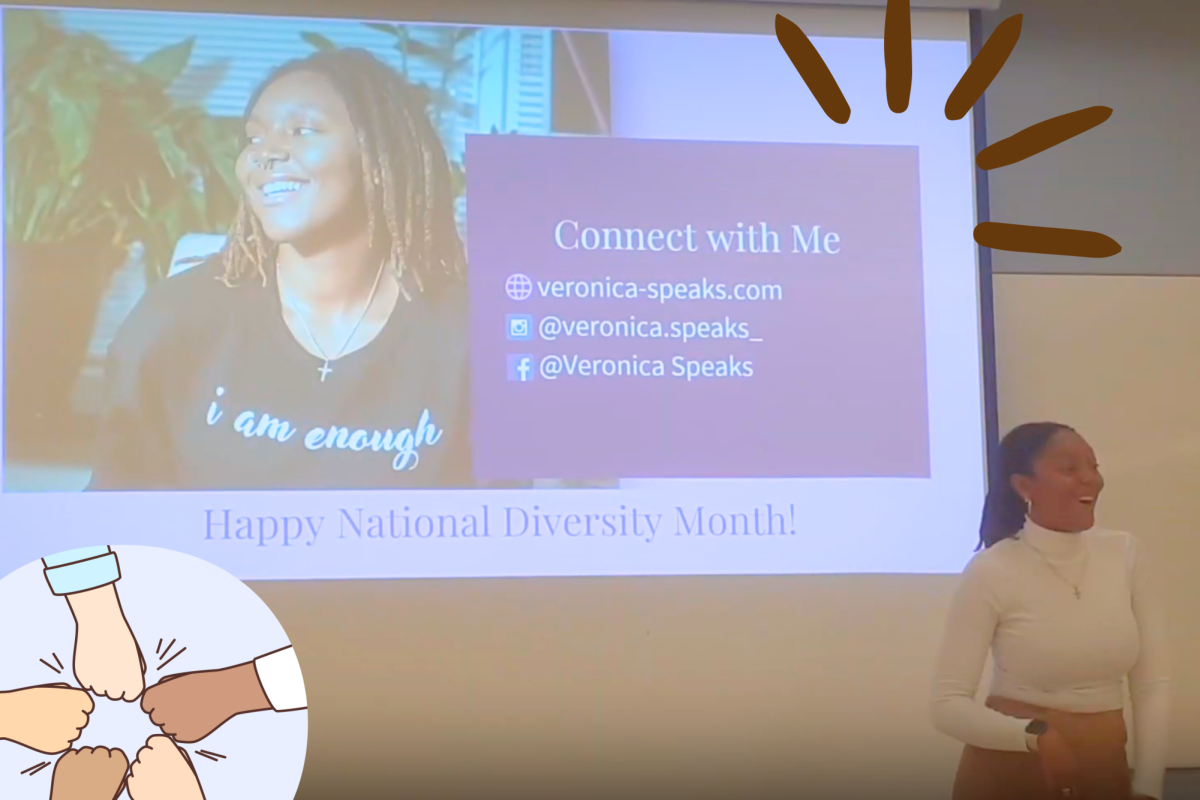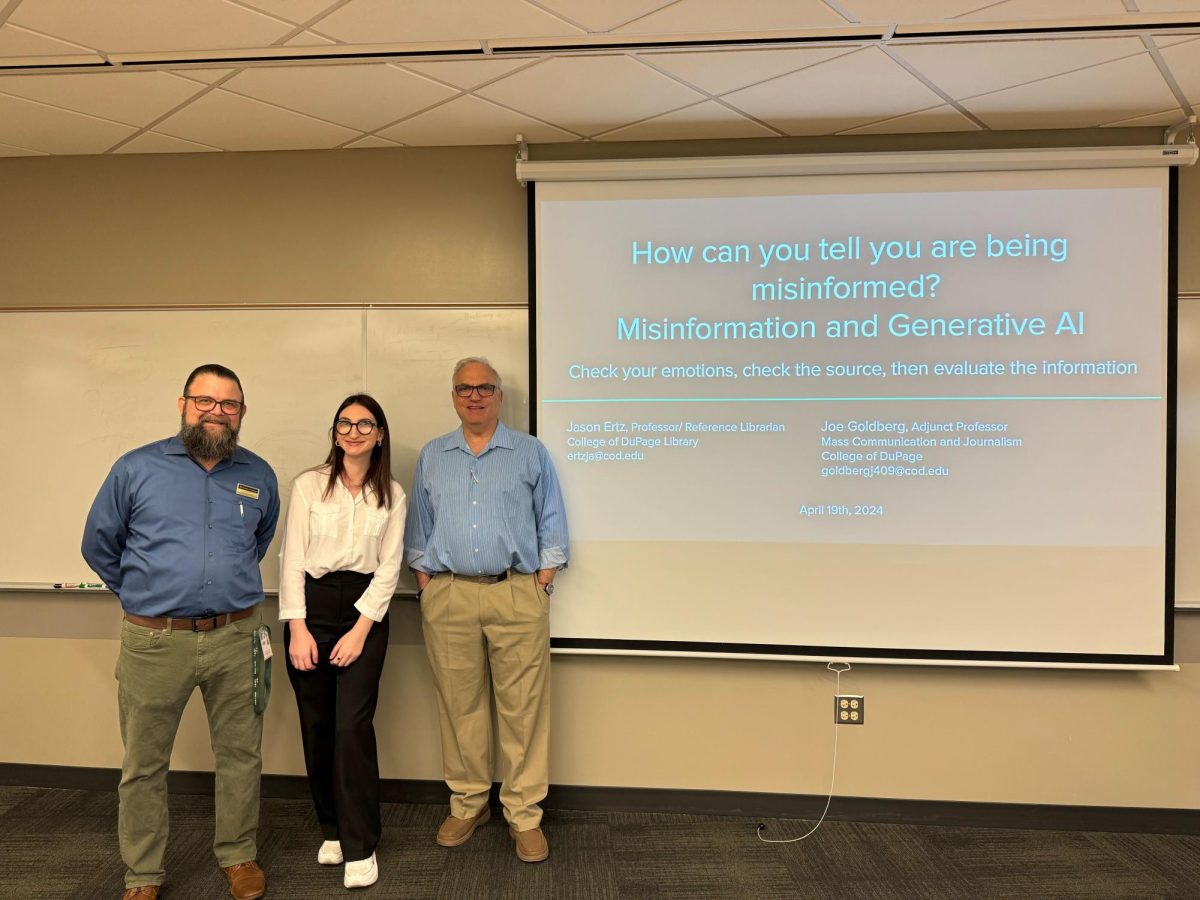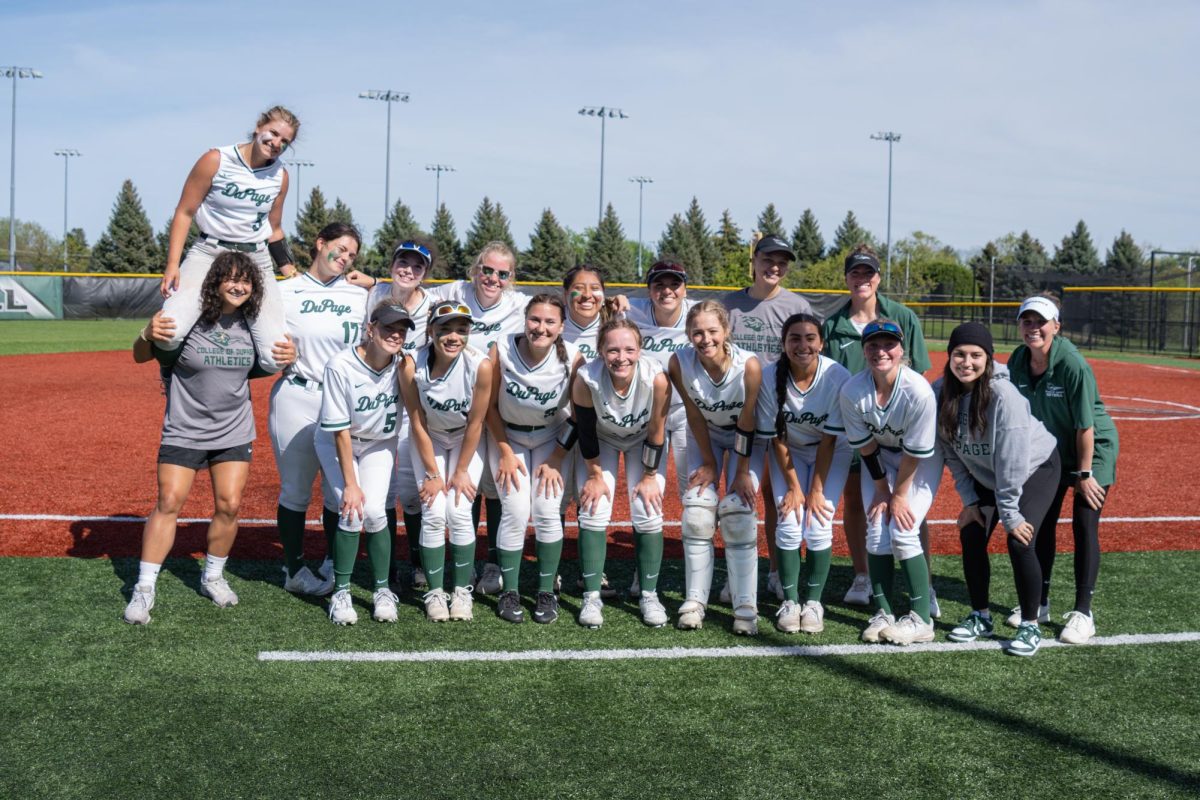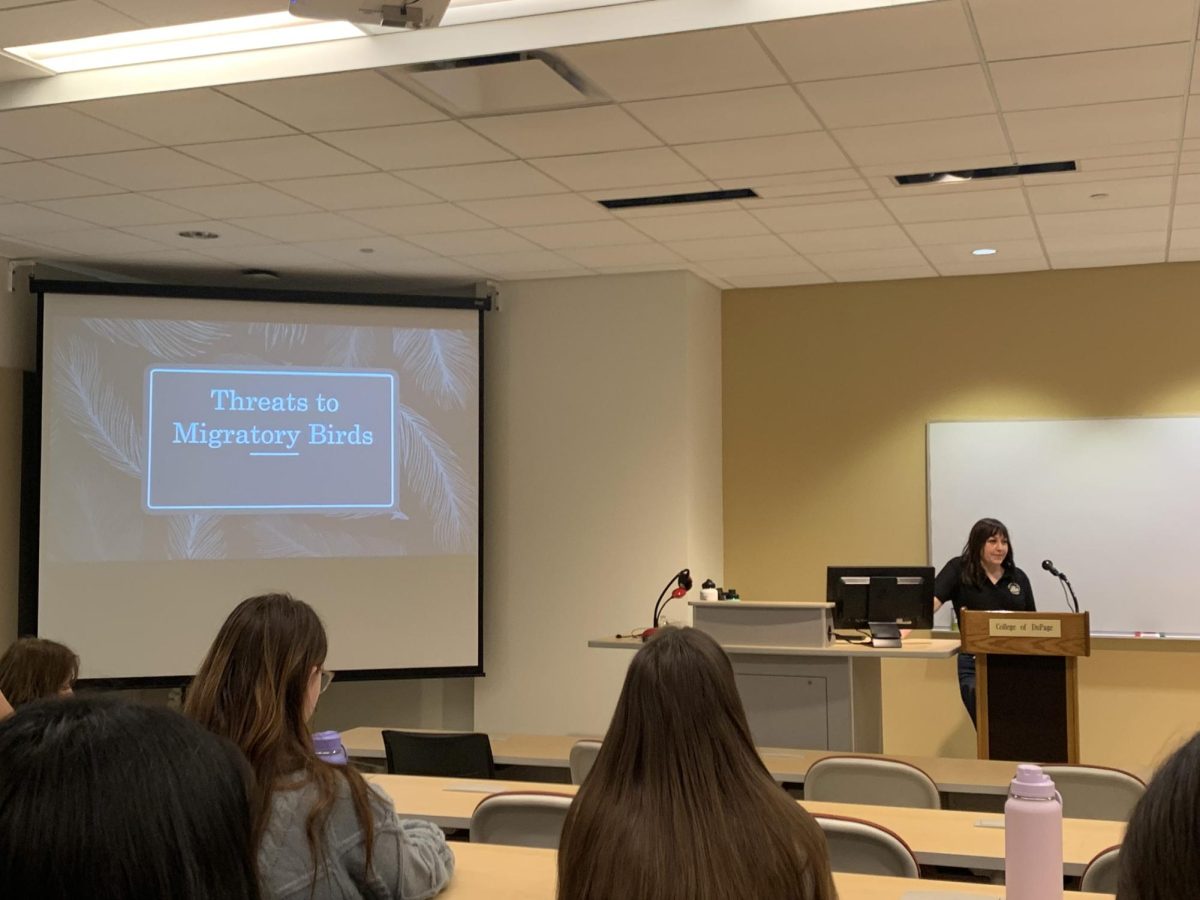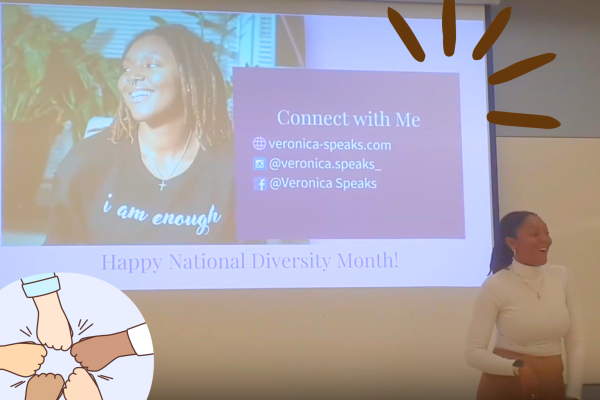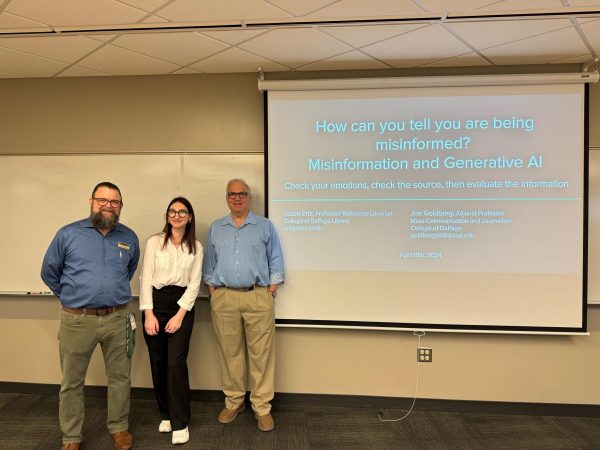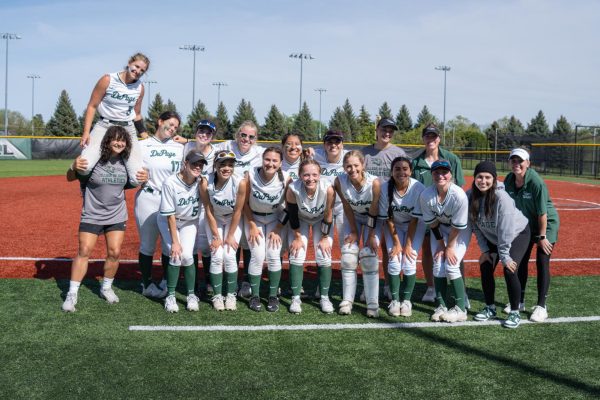Composting 101
Learn about what it means to compost, how composting affects the COD community and how to begin composting this summer.

COD’s Fuel Garden, pictured above. Courtesy of Ana Vitek, Fuel Garden manager.
May 17, 2021
As warmer weather approaches, now is the perfect time to get involved in a new summer hobby. For those looking for a challenge, learning how to compost is a great way to get outside, connect with nature and introduce environmental practices into daily life.
What exactly is composting? How does it work? What are its benefits? Ana Vitek, the manager of COD’s Fuel Garden, has the answers.
“[Composting is] basically like creating an organic fertilizer,” Vitek explains. “For [the Fuel Garden], it’s been hugely important to garden organically as much as possible. Organic gardening is all about making the best soil and having the most nutrient rich soil, so that when you’re growing vegetables, you get a strong crop and a really good harvest.”
Composting is a major part of the success of the COD’s Fuel Garden, which was established to help aid in the fight against food insecurity by providing accessible organic vegetables to the greater COD community. Every week, fresh and organic vegetables are harvested and taken to COD’s Fuel Pantry, where food insecure students, faculty and staff can pick up the food they need.
According to the U.S. Environmental Protection Agency, traditional composting requires three simple components. At its core, composting involves taking wasted or unused organic materials (egg shells, coffee grounds, fruit peels, etc.), mixing them with a “brown” layer (plain cardboard, dead leaves, branches, twigs, etc.) and adding water. The used organic materials, along with the brown layer, will eventually break down into a nutrient rich organic fertilizer that helps maximize plant growth and minimize plant disease. The composted fertilizer, as Vitek explains, is one of the reasons the Fuel Garden is able to produce such high volumes of vegetables for the COD community.
“We have been growing over 50 crops outside and year round in the greenhouse using aquaponic, hydroponic, and aeroponic techniques,” Vitek says. “All of that produce we grow goes to the food pantry on campus. Last year, we grew 840 pounds of veggies, and all of that went to the weekly pantry to help fight food insecurity on campus.”
A 2015 survey by COD’s Phi Theta Kappa chapter found 100 out of 750 surveyed students only had access to 2 or fewer meals per day. Ultimately, both the Fuel Pantry and the Fuel Garden hope to bring the number of food insecure students, staff and faculty down to zero.
Without the help of composting, the harvest at the Fuel Garden would not be as abundant and many COD community members would be unable to enjoy plentiful organic vegetables. In fact, according to Vitek, the Fuel Garden depends on composting so much that they have established three different kinds of composting within the facilities.
“We have a traditional three-bin compost system in the Fuel Garden, and we have Bokashi composting going on,” Vitek explains. “In addition to that, we just introduced this season’s ‘worm composter.’ So we also have worms helping us breakdown veggies and make compost that we can use to topdress the garden.”
Bokashi composting is undoubtedly one of Vitek’s favorite ways to compost. Not only is the process faster, but it takes up far less space than a traditional compost system. On top of that, because Bokashi composting is an anaerobic process (it occurs without oxygen), it can break down more organic materials than a traditional composting system.
“Bokashi composting is awesome, most people haven’t heard of it,” Vitek says. “It’s a Japanese technique for taking food waste and turning it into valuable compost. It takes about a month to six weeks, typically, and traditional composting takes a lot longer, usually six months, so Bokashi is super fast, which is why we like it.”
Regardless of if you have a large garden or a few potted plants throughout your home, composting is an accessible activity that everyone can get involved in. In actuality, as Vitek explains, composting is easy and extremely beneficial for the health of your plants and the environment.
“If we all composted, we’d send so much less waste to the landfill, and landfill waste produces a lot of methane and greenhouse gas,” Vitek says. “So we would really be helping the bigger picture if we all did it.”
For those looking to compost this summer and beyond, here are a few tips to help you get started:
Collect used or unwanted organic materials
These organic materials can be unused vegetable scraps, fruit waste, coffee grounds, egg shells, grass clippings, house plants and sawdust. Other materials that need to be included are twigs, cardboard and dead leaves. You should avoid including moldy bread and meat scraps for a traditional composting system, although a Bokashi composting system should be able to handle minimal amounts of meat and moldy material.
Place the materials in a container
Choosing a container really depends on your home situation. A rudimentary traditional compost system can be created simply with a 5 gallon bucket and a lid. For those looking to compost indoors or need accelerated results, a Bokashi bucket can be purchased or created using two 5 gallon buckets.
Mix the compost periodically
One of the most important factors in determining the success of any compost system is ensuring there is an evenly distributed spread of organic materials and brown materials. Occasionally turn over your collected materials to ensure everything is composted evenly. Additionally, you do not want to overload your composting system with organic material. If the bin starts to accumulate too much waste, it may be necessary to purchase another bin or Bokashi bucket.
Starting to compost may seem overwhelming at first, but the process proves to be simple and extremely beneficial for the environment. Above all, Vitek says the best way to compost is to dive in head first.
“The way that you get started really is to lean into it,” Vitek explains. “It would just really help our local environment, and it would help globally. That’s why it’s so important.”
For more information on composting specifics, visit: epa.gov/recycle/composting-home
To learn more about the COD Fuel Garden, including a current student sculpture showcase, check out their Instagram: instagram.com/cod_fuel
For more on the College’s Fuel Pantry, visit: cod.edu/student_life/pantry/index.aspx











